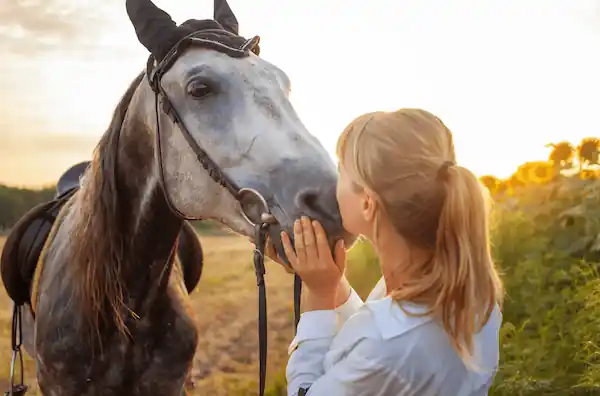Pets are an integral part of our lives. They are often considered full members of the family, and for good reason, they bring love, comfort and joie de vivre. But with owning a pet also comes responsibilities, such as taking care of their food, hygiene, and care.
First of all , there are different types of pets, each with their own characteristics and needs. Cats and dogs are the most common pets. They are known for their affection and their ability to be trained. Birds, rodents and reptiles are also popular, but require specific care depending on their species. It is important to think carefully before choosing a pet, taking into account its lifestyle and needs.
Once the pet is chosen , the responsibility of caring for it begins. First of all, it is important to feed the animal with a healthy and balanced diet. Dogs and cats need high quality food to maintain their health, while birds need seeds and fresh fruits. Rodents need hay and vegetables, while reptiles need live or frozen prey.
Hygiene is also important for the health of the animal. Dogs and cats need regular brushing to avoid mats and skin issues, while birds need regular baths to keep their feathers clean. Cages and habitats should also be cleaned regularly to prevent disease.
- Veterinary care is also an important part of pet care. Regular vaccinations are necessary to prevent disease, and visits to the veterinarian are necessary to treat health problems. It is important to ensure that the pet has enough exercise and social interaction. Dogs need regular walks, while cats need toys for entertainment. Birds need to get out of their cage to fly, while rodents need exercise wheels to stay active.
Owning a pet is a big responsibility. Owners should be prepared to care for the animal over the long term, providing healthy food, proper hygiene, regular veterinary care, and enough exercise and social interaction. But with proper care, pets can bring a lot of happiness and love into our lives.
When it comes to hygiene , it's important to keep your cat's litter box clean and to clean your rodent's or bird's cage regularly. It is also essential to brush your dog or cat's hair to avoid mats and skin problems. Pets may also need regular baths, but it's important not to bathe them too often as this can dry out their skin and coat.
it is important to understand that pets require regular medical care. You should take your pet to the vet at least once a year for a routine checkup and to update their vaccinations. Also, if you notice any signs of illness in your pet, such as vomiting, lethargy, or difficulty breathing, you should seek veterinary care immediately.
Having a pet can be a rewarding and wonderful experience, but it comes with responsibilities. It's important to choose the right pet for your lifestyle, provide the proper care and attention, ensure they have a balanced, quality diet, maintain proper hygiene, and take them home regularly. the veterinarian for routine examinations. By following these tips, you can ensure that your pet stays healthy and happy for years to come.
What are the laws governing the keeping of pets in France?
In France , pets are considered sentient beings and are protected by law. There are several laws that govern the keeping of pets and guarantee their well-being.
First of all, the law of January 6, 1999 relating to dangerous and stray animals and the protection of animals defines the rules for keeping dangerous dogs and for combating the wandering of animals. This law imposes in particular an obligation of sterilization and identification for dogs of certain breeds, as well as an obligation to keep a leash and wear a muzzle in public places.
the Rural and Maritime Fisheries Code regulates the keeping of pets in general. In particular, it requires animal owners to provide them with food, shelter, care, hygiene and an environment appropriate to their physiological and behavioral needs. The Code also requires owners to keep their pets on a leash or under supervision in public places, to ensure their cleanliness and safety, and to prevent any nuisance they may cause to neighbors or passers-by.
The law of February 16, 2015 on the modernization and simplification of law and procedures in the areas of justice and internal affairs has reinforced the penalties in the event of mistreatment or cruelty towards pets. In particular, it provides for prison sentences and fines for people who mistreat or abandon animals.
In short, French laws require pet owners to respect their physiological and behavioral needs, to guarantee their safety and cleanliness, and not to cause nuisance to neighbors or passers-by. Penal sanctions are provided for in the event of mistreatment or cruelty to animals.
What are the laws governing the keeping of pets in Belgium?
In Belgium , pets are protected by several laws and regulations, the main ones being:
- The law of 14 August 1986 on the protection and welfare of animals, which establishes the general rules for the keeping, transport, breeding, sale and protection of pets.
- The Royal Decree of 27 April 2007 relating to the conditions of keeping pets, which specifies the specific rules for keeping dogs, cats, ferrets and other pets.
- The Royal Decree of 17 June 2004 relating to the identification and registration of dogs, which imposes the compulsory identification of dogs by tattoo or electronic chip, as well as the registration of their owner in a database.
- The Royal Decree of 27 April 2007 relating to the conditions for the approval and operation of establishments for the breeding and sale of pets, which establishes the rules for establishments for the breeding and sale of pets.
In short, the keeping of pets in Belgium is framed by several laws and regulations which aim to protect their well-being and their health, as well as the safety of people and other animals. Pet owners must comply with these rules to ensure the safety and well-being of their pet and to avoid legal penalties.
Here are some frequently asked questions for general information about pets...
- What are the most common pets?
Dogs and cats are the most common pets, followed by fish, birds and rodents such as hamsters and rabbits.
- How do I choose the right pet for me?
It's important to consider your lifestyle, budget and available space before choosing a pet. If you live in a small apartment, a large dog may not be the best choice. If you work a lot and are often away from home, a cat or fish may be more suitable than an animal that requires a lot of attention like a dog.
- How do I take care of my pet?
The care needed varies by animal, but in general you should provide quality food and fresh water, as well as a clean, comfortable place to sleep. You should also take your pet to the vet regularly for routine checkups and vaccinations. Pets also need lots of exercise and attention, so it's important to spend time with them and mentally stimulate them.
- How do I socialize my pet?
Socialization is important for all pets. Dogs and cats need to be exposed to different environments and other animals from an early age to prevent them from becoming anxious or aggressive. Rodents and birds can also benefit from gentle, gradual socialization to avoid stress.
- How do I feed my pet?
Pet food should meet the specific nutritional needs of each animal. Dogs and cats need high quality protein and an appropriate balance of fats and carbohydrates, while fish, birds and rodents need a species-specific diet. It is important not to overfeed your pet as this can lead to obesity and associated health issues.
- What if my pet gets sick or injured?
If your pet becomes ill or injured, it's important to see a veterinarian as soon as possible. Do not attempt to diagnose or treat your pet yourself, as this could make the situation worse. Pets can be insured to cover the costs of veterinary care, so it is recommended that you consider pet insurance to help cover the high costs of veterinary care.
And finally, I don't forget our majestic and fascinating pet :)
Horses are majestic and fascinating animals, which have long been appreciated for their beauty and grace. Although horses are not traditionally considered pets, it is increasingly common to keep them for companionship and recreation.
Horses are social animals and need interaction with humans and other horses for their well-being. They are also very intelligent animals and can be trained to perform a variety of tasks, such as dressage or show jumping.
Caring for a horse can be expensive and requires a large amount of time and commitment. Horses need shelter, pasture and proper feed, such as hay and grass. They also need regular health care, such as dental checkups and vaccinations, as well as care for their hooves and coat.
Horse owners should also be aware of the potential dangers associated with owning a horse. Horses can be large and can be dangerous if poorly trained or controlled. Owners should also be aware of the injury risks to horses, such as disease and exercise-related injuries.
However, for those who are ready to take on these responsibilities, owning a horse can be an extremely rewarding experience. Horses can provide a unique and meaningful relationship with their owners, as well as opportunities for physical exercise and recreation. Horse owners can also participate in equestrian competitions and social events to meet other horse enthusiasts.
although horses are not traditional pets, they can provide a unique and meaningful relationship with their owners for those willing to take on the responsibilities associated with their ownership. Horse owners must be prepared to invest time, money and commitment to care for their animals and ensure their health and well-being.
In France and Belgium , the following animals are prohibited or regulated:
- Non-domestic species (monkeys, crocodiles, snakes, etc.)
- Species likely to present a danger to humans (big cats, bears, wolves, etc.)
- Animals considered pests (nutria, raccoons, etc.)
- Exotic or rare animals that are trafficked (certain species of turtles, certain exotic fish, etc.)
However, it should be noted that the exact list of prohibited or regulated animals may vary from country to country and special permits may sometimes be obtained to keep animals considered dangerous or exotic. It is therefore advisable to inquire with the competent authorities before considering the acquisition of an unconventional animal as a pet.
Here are some Belgian and French websites that provide information on pet laws and regulations:
Belgium:
- The website of the FPS Public Health, Food Chain Safety and Environment: https://www.health.belgium.be
- The website of the Royal Saint-Hubert Association: https://arsh.univ-grenoble-alpes.fr/
- The website of the Society for the Protection of Animals (SPA): https://www.spa.be/
France:
- The website of the Ministry of Agriculture and Food: https://agriculture.gouv.fr/ Animaux- de-compagnie
- The Rural Code and Maritime Fishing website: https://www.legifrance.gouv.fr/codes/id/LEGIARTI000042162542/
- The 30 Million Friends Foundation website: https://www.30millionsdamis.fr/
It is important to note that this list is not exhaustive and it is always recommended to refer to official websites for the most accurate and up-to-date information.






